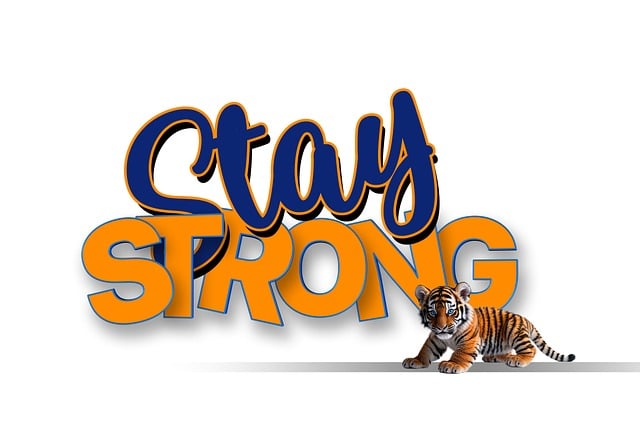Ancient practices like yoga and meditation, integrated with evidence-based therapies (including free online therapy sessions for substance abuse) and holistic nutrition, offer a comprehensive approach to addiction recovery. These methods work synergistically to address mind, body, and spirit as interconnected entities, fostering stress relief, self-discovery, mental clarity, emotional balance, and sustainable lifestyle changes – all crucial elements for optimal mental health healing. Holistic wellness retreats provide an ideal environment to combine these practices, creating a nurturing space where individuals can reconnect and thrive.
Discover the transformative power of holistic wellness retreats, where yoga, meditation, and nutrition intertwine to facilitate deep healing. Explore how these practices, backed by scientific research, offer a comprehensive approach to well-being, especially beneficial for those seeking recovery from substance abuse. In this article, we delve into the significance of yoga and meditation as foundations for holistic healing, uncover the role of nutrition in addiction recovery, and highlight why integrating these practices is key to successful and comprehensive wellness retreats, even providing free online therapy sessions for substance abuse as resources.
- Yoga and Meditation: The Foundation of Holistic Healing
- Nutrition as a Powerful Tool for Substance Abuse Recovery
- Integrating These Practices: A Comprehensive Approach to Wellness Retreats
Yoga and Meditation: The Foundation of Holistic Healing

Yoga and meditation are the cornerstones of holistic wellness retreats, providing a profound foundation for healing. These ancient practices have gained immense popularity in modern times, especially within the realm of addiction recovery and trauma-informed care. By combining mindfulness and physical postures, yoga offers a unique approach to stress relief and self-discovery. It encourages individuals to connect with their bodies, fostering a sense of grounding and inner peace. Similarly, meditation cultivates mental clarity and emotional balance, allowing participants to confront and overcome the challenges associated with substance abuse.
Incorporating these practices into addiction recovery programs has proven effective in promoting overall well-being. During early sobriety, establishing healthy habits is crucial; yoga and meditation provide a means to navigate this transition smoothly. By participating in free online therapy sessions for substance abuse alongside these activities, individuals can embark on a transformative journey towards personal growth and long-term healing.
Nutrition as a Powerful Tool for Substance Abuse Recovery

Nutrition plays a pivotal role in substance abuse recovery, often overlooked yet equally powerful as evidence-based medications for withdrawal management and yoga and meditation classes for stress reduction. A balanced diet rich in essential nutrients supports not just physical healing but also mental well-being. Many individuals struggling with addiction have malnourished bodies, which can impact their overall health and make it harder to maintain sobriety. Therefore, integrating nutritious meals and healthy relationships coaching in early sobriety becomes crucial for long-term success.
Free online therapy sessions for substance abuse are readily available and offer an accessible way for those in recovery to address underlying issues contributing to addiction. Combining these therapeutic services with a structured nutritional plan can significantly enhance the recovery process. Holistic wellness retreats cater to this holistic approach, providing a safe environment where individuals can focus on healing their bodies and minds through yoga, meditation, evidence-based medications when necessary, and tailored nutrition support for optimal substance abuse recovery.
Integrating These Practices: A Comprehensive Approach to Wellness Retreats

Holistic wellness retreats offer a comprehensive approach to healing by integrating yoga, meditation, and nutrition—a trio that empowers individuals on their journey to mental health help. These practices are not just complementary; they work synergistically to address the mind, body, and spirit as one interconnected entity. Yoga provides physical postures and breathing techniques that enhance flexibility, strength, and balance, while also calming the nervous system. Meditation cultivates mindfulness and self-awareness, helping individuals develop a deeper understanding of their thoughts and emotions without judgment. Nutrition plays a crucial role in mental health by ensuring the body receives the necessary fuel to support overall well-being and facilitate healing processes.
Incorporating free online therapy sessions for substance abuse into these retreats further enriches the experience. Trauma-informed care, tailored to each participant’s unique needs, helps address underlying emotional wounds that may have contributed to unhealthy behaviors or substance misuse. Holistic wellness programs integrating yoga, meditation, and nutrition for deep healing create a nurturing environment where individuals can reconnect with themselves, discover inner peace, and cultivate sustainable lifestyle changes.
Holistic wellness retreats, combining yoga, meditation, and nutrition, offer a transformative experience for those seeking deep healing. By integrating these ancient practices, retreats provide a comprehensive approach to well-being, addressing both the mind and body. For individuals looking for an alternative path to recovery from substance abuse, these retreats can be a game-changer, offering not only respite but also powerful tools like free online therapy sessions tailored to their unique needs. Embracing this holistic model can lead to lasting positive changes and a renewed sense of vitality.






